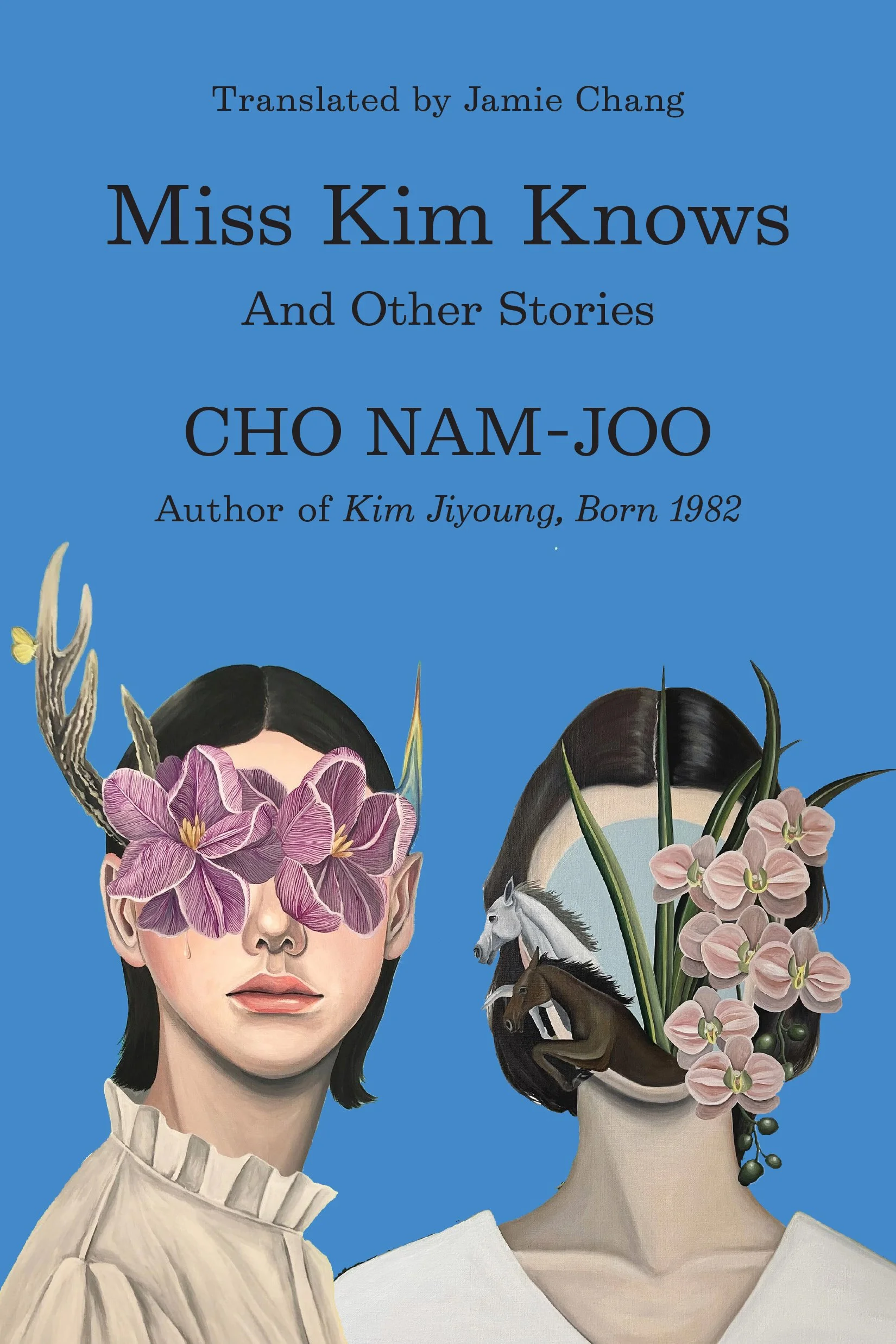Miss Kim Knows by Cho Nam-joo
Review of Miss Kim Knows by Cho Nam-joo
Miss Kim Knows by Cho Nam-joo, translated by Jamie Chang (2024). Published by Liveright.
If you’re new here, and stumbled upon this blog through the mythical powers of the Internet, welcome! I know a lot of visitors to my website are people who randomly come upon this website through search engines like Google, but I also do have a lot of visitors who come back. Regardless: my name is Ashley, and I started this blog in order to keep track of everything I’m coming across in the world.
For three years I worked professionally as a film critic, and while going to all of the film festivals and interviewing directors and actors was cool for a while, but I wanted to reclaim my time and watch movies I wanted to watch. Sometimes watching all of the new releases is great, and behind ahead of the curve, but I feel like I was falling so behind on movies I was genuinely excited about.
So I quit and decided to focus on this blog, and fell back more into literary criticism. I also randomly fell into a period of unemployment because of unexpected circumstances, and I took a long and hard look at my finances and realized I had enough to take time off. I did end up doing that, traveled for a bit, applied to jobs, and found myself working on the blog now more than ever.
Long time blog readers are probably going to recognize what I’m typing next. One of my favorite ways to find new books is to wander my local library branch and see what they have to offer, even if it’s something that’s way outside of my usual comfort zone. Reading diversely has been something very important to me for years, so this is a way to find new books.
It was in the new fiction section of the local library that I found a copy of Miss Kim Knows. I was really surprised to see it there, but also not at the same time. My library system has been doing a great job of diversifying the kinds of books they’re stocking, and while they might not be what BookTok is looking for, I’m definitely checking all of these books out one by one.
I flew through my copy of this book though. I don’t mean that lightly—to not spoil my thoughts entirely, I think I liked this one more than Kim Ji-young, Born 1982.
Let’s get into the review!
Eight stories focusing on the difficulties and unique situations women in Korea face on the daily.
As the header above suggests, this is a short story collection, not a novel like Cho’s previous work in English (Kim Ji-young, Born 1982). I read her other novel years back, when I was in college and before Korean literature and culture really began to explode across the world, so I was excited to pick this collection up.
Each of the eight short stories contained within this collection focus on the lives of women. They’re young, middle-aged, old—Cho focuses on everyone and how they face unique problems across each age group. For example, one of the stories is about an old woman who realizes how she is depicted and treated because of her age in Korean society, even within their own families.
For the stories featuring middle aged women, it’s really about coming to terms with aging and how society favors younger women, especially when it comes to appearances, jobs, and opportunities in general. I would say several of the women featured in these stories also have some heavy emotional baggage due to trauma,
But worst of all, even schoolgirls are not immune to the harassment and sexualization of women and girls. In schools they’re not only facing bullies in these schools, but thanks to the Internet and cellphones it’s becoming easier than ever. I always wondered when I was living in Korea why the phones and SIM cards there are legally supposed to play the click noise whenever you take a picture.
Turns out it’s a law because men were being such big creeps to women that they needed to add sound back onto cellphone cameras by force. Now people are aware when someone else is taking a picture because of the sound, which helps to prevent some sexual digital crimes. Spy cameras in bathrooms and public spaces are still a huge problem, though.
My favorite stories were the titular one, “Miss Kim Knows,” the one about sexual harassment in schools and what a mother is doing to fight against it, and the girlfriend who decides she’s sick of what her boyfriend did to her (which is terrible, in case you need a little context) and wants revenge.
Overall Thoughts
As I wrote before, I genuinely enjoyed this collection more than Kim Ji-young, and I think it’s because we were allowed to step away and see a broader range of experiences. I study Korean women’s history and did my master’s thesis on colonial Korean women writers, so I’m very familiar with how the patriarchy bleeds into contemporary Korean society.
Kim Ji-young is a good book, and I have no complaints about it in general. I just think this book helps capture the current situation in a way that’s more effective to me as a reader. Her writing in both books is spectacular, and the translations effective and efficient, making this a good read for a rainy weekend.
I read it pretty quickly because of how much I enjoyed the stories, but you can pace yourself better than I did. All of this is to say though that if you’re interested in this collection, I definitely recommend picking it up at least once!
Follow me below on Instagram, Goodreads, and Letterboxd.


![Jeju-do (제주도) is one of those places that reminds you of how stunning the world is
[7.12.2024 부터 7.14.2024 까지]](https://images.squarespace-cdn.com/content/v1/5ea1f794501b7153b29e7cd7/1721033601522-554E76HR01JUHDWZBJ1I/image-asset.jpeg)









